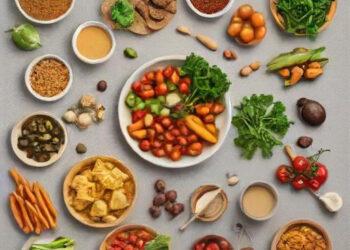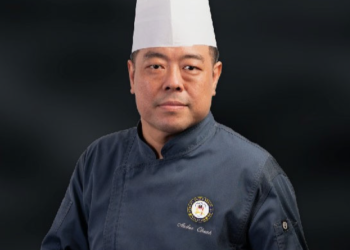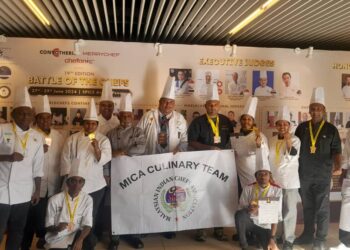By Chokkapan S (chock@imaws.org)
Meriiboy is a name that puts a smile across the faces of buck-toothed little boys to their toothless grannies in Kerala. One of the largest producers of fresh and natural ice cream in south India, Meriiboy is from the Cousins Group.
The ice cream brand is unique in the way it produces only fresh ice cream and not frozen desserts like many others in the market. It set up its first manufacturing unit, under Supreme Food Industries, at Kalady, Ernakulam. The brand is steadily gaining popularity in the neighbouring markets of Tamil Nadu and Karnataka as well for its freshness and high quality. Meriiboy has been constantly exploring new and exciting flavours with new products like ice creams in real fruit shells, fresh fruit ice creams and milk lollies.
Fresh, Fruity & Not Frozen
In our quest to know about the process behind the taste, we met Stephen Devassy, partner at Supreme Food Industries from Perumbavoor. He minces no words in explaining to ChefBharath readers what goes into making one of India’s best and real ice creams. “We are pioneers in natural colours and flavours in the ice cream industry. We have been experimenting with the same in our products since inception,” warms up Mr Devassy.
The company’s speciality, according to him, is that it processes all fruit extracts naturally without any additives. “We process the fruits that go into our ice creams in our own production facility, unlike some ice cream manufacturers that buy pulp and user directly. This helps us maintain our quality. In fact, we process around 2,400 tender coconuts alone in a day, which is highly labour-intensive and involves a lot of quality control.”
As for its USP, Meriiboy introduces two new flavours – as fruity as possible – each year. “We innovated with the news flavours of passion fruit and custard apple last year. Typically, we use around four products to lend a natural taste to our ice creams,” explains Mr Devassy. The brand has been quite innovative when it comes to the packaging as well, “with us being one of the pioneers in ‘in-mould labels’ in India,” he points out, adding, “Earlier, many market players had stickers on plain plastic containers, which used to soak up the moisture and peel off. But once we introduced the in-mould labels, others followed soon.”
Lone Weak Spot
Mr Devassy says that these innovations help them enjoy a good rapport with their supply chain in the modern retail space, including Reliance and Bismi Group. “We merchandise our products very well at these stores, including boards and sampling.”
Hotels Restaurants & Cafés (Ho-Re-Ca), however, remains a weak area for Meriiboy. “With brand visibility and recognition almost zero in this segment, we don’t have much of a presence. We work with a few elite customers in the Ho-Re-Ca segment that are in sync with our ideology of high quality with a deserving price tag. As we use milk and fresh cream that costs around Rs 300 per kg in lieu of vegetable fats in frozen desserts that come at a one-third pricing, many in the segment has an issue with the price point,” laments Mr Devassy.
Ice, Ice, Baby!
He stresses that the importance of ice cream has to increase in the desserts segment. “It’s not as much as it is in the B2C space. Yet, we have a few five-star hotels as our customers. They have to appreciate the quality of good ice creams more. When we entered the market in 2003-04, Kerala was full of frozen desserts. We literally struggled with it, as our prices were around 30-40 per cent higher than the products of our competitors. Despite the tough times, we never wanted to compromise on our quality.”

Around 2013, Mr Devassy apparently visited more than 10 chefs from star hotels to brainstorm and find out what the market needs. “Most of them were serving Baskin Robbins or Amul in their in-house restaurants, while it was some sub-standard ice cream in their buffet spread. It is because the price point was weighing heavily in their minds,” he avers.
The popular ice cream brand has positioned all its products in the premium category. “We don’t offer much discounts to our B2C customers.” They don’t seem to be complaining, though, with Meriiboy’s 28 flavours. Mr Devassy states, “We introduced blueberry flavour in 2015. It is not so popular, underrated and a very rare flavour in India. Blueberry is a popular summer fruit across the globe known for its high anti-oxidant and anti-depressant capacities. Only around 15 per cent of our stockists have blueberry, while over 60 per cent stock up our tender coconut flavour, as it is much sought-after in Kerala.” The brains behind the brand are contemplating the launch of wild berries, but the lack of adequate supplies of the fruit has been a spanner in the works.
What does he think about the ready-to-make ice cream kits that are mushrooming lately in India? “It’s almost impossible to achieve the consistency that we do with a Tetra Pak Hoyer homogeniser from Denmark, even with an experienced beater. Moreover, the cold chain has to be maintained between -18 degrees and -12 degrees all the time to keep it consistent,” declares Mr Devassy.
ADVERTISEMENT








